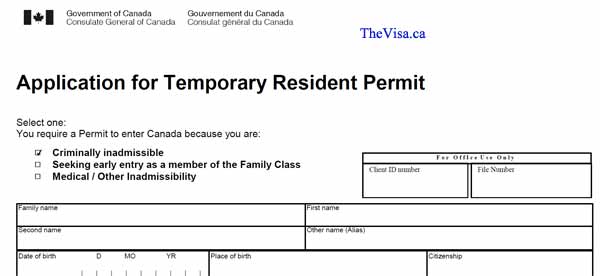Entering Canada with OWI
OWI, or Operating While Intoxicated, is used in several states. Each state has its own interpretation of the charge and the associated penalties for conviction. In general, one difference between a DUI charge and an OWI charge is that the offender does not necessarily have to be driving.
If you have received an OWI arrest or conviction, regardless of what state it happened in, you will require special permission to enter Canada. This means you will be required to apply for either a Temporary Resident Permit (TRP) or Criminal Rehabilitation. The TRP is useful for upcoming trips to Canada as it allows a faster processing time than Criminal Rehabilitation. However, you will need a specific reason to enter Canada and will be given a limited time to visit. The longer to process Criminal Rehabilitation will permanently clear you of needing special permission to Canada once approved.
Contact our team of experienced Canadian immigration lawyers and consultants today to explore your options for entering Canada with an OWI.
What is an OWVI?
An OWVI, or Operating While Visibly Impaired, is a less severe charge than an OWI. First time offenders can often plead down to an OWVI from an OWI. Despite it being considered a lesser charge, it can still make you inadmissible to Canada at the border or a port of entry.
Getting an OWI in Iowa
Iowa State enforces a legal limit of .08% for blood alcohol concentration (BAC) to determine if an offender receives an OWI charge. Also, if you are found to have any amount of a controlled substance in your system, you can also be charged. Iowa, like many other states, also has an Implied Consent law. Basically, if a police officer has reasonable grounds to request that you perform a blood, breath, or urine test and you refuse; your refusal could result in a criminal charge.
Iowa has specific legislation for underage (under 21) drivers as well. If you are under 21 and are found to have a BAC level of .02% or higher upon testing, you could be charged with an underage DUI.
Another special provision that Iowa enforces concerns offenders whose BAC level was .10% or higher. The penalties for this charge are more severe and often require mandatory installation of an IID (Ignition Interlock Device) and a temporarily restricted license.
Getting an OWI in Michigan
OWI charges are outlined in 257.625 of the Michigan Vehicle Code. A first time offense OWI is considered to be a misdemeanor and the general penalties are:
6 month driving restriction
6 points against a driver's license
Up to 180 days of jail time
Fine of $500
360 hours of community service
In Michigan, if you were tested at .17% blood alcohol content (BAC) or higher, the penalties become more severe. In this case you could receive a 1 year license suspension, be required to attend an alcohol treatment program, and be required to have an ignition interlock device (IID) installed in your vehicle.
Getting an OWI in Wisconsin
An OWI in Wisconsin can potentially have two meanings: Operating While Impaired or Operating While Intoxicated. Typical penalties are:
1st Offense OWI
Revocation of driver's license from 6 to 9 months
$300 criminal forfeiture (government may apply to confiscate property)
2nd Offense OWI (within 10 years of a previous conviction)
Up to $1000 fine
From 5 days to 6 months of imprisonment
If you are planning to travel to Canada with an OWI, contact us today for a consultation. Our team of experts (Lawyers and consultants) can help determine the best steps to take in overcoming your inadmissibility.

